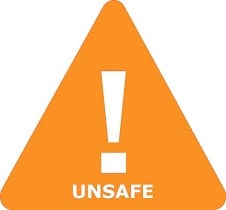Is Nitrogen-13 Safe in Breastfeeding
Question
I am a breastfeeding mother and i want to know if it is safe to use Nitrogen-13? Is Nitrogen-13 safe for nursing mother and child? Does Nitrogen-13 extracts into breast milk? Does Nitrogen-13 has any long term or short term side effects on infants? Can Nitrogen-13 influence milk supply or can Nitrogen-13 decrease milk supply in lactating mothers?
Nitrogen-13 lactation summary

- DrLact safety Score for Nitrogen-13 is 5 out of 8 which is considered Unsafe as per our analyses.
- A safety Score of 5 indicates that usage of Nitrogen-13 may cause serious side effects in breastfed baby.
- Our study of different scientific research indicates that Nitrogen-13 may cause moderate to high side effects or may affect milk supply in lactating mother.
- Our suggestion is to use safer alternate options rather than using Nitrogen-13 .
- It is recommended to evaluate the advantage of not breastfeeding while using Nitrogen-13 Vs not using Nitrogen-13 And continue breastfeeding.
- While using Nitrogen-13 Its must to monitor child for possible reactions. It is also important to understand that side effects vary largely based on age of breastfed child and time of medication in addition to dosage.
- Score calculated using the DrLact safety Version 1.2 model, this score ranges from 0 to 8 and measures overall safety of drug in lactation. Scores are primarily calculated using publicly available case studies, research papers, other scientific journals and publically available data.
Answer by Dr. Ru: About Nitrogen-13 usage in lactation
Radiation from a PET scan test is not higher than that from an abdominal CAT scan test. Small quantity and short half life span of radionuclides used for this test make it safe to nurse the baby shortly after the test is done. Overall, it is safe to stop nursing for a 5 to 6 of isotope half life period which is the time require for the complete disappereance of radioactivity from the body. Half life spans . . . . . . . . . . . . . . . . . Breastfeeding interruption time F-18: 110 minutes . . . . . . . . . . . . . . . . . 10 hours (avoid contact for the first 4 hours) C-11: 20 minutes . . . . . . . . . . . . . . . . . . . 2 hours N-13: 10 minutes . . . . . . . . . . . . . . . . . . . 1 hour O-15: 2 minutes . . . . . . . . . . . . . . . . . . . 10 minutes Rb-82: 1,3 minutes . . . . . . . . . . . . . . . . . . 8 minutes Meanwhile the half life span goes by milk pumping and freezing is recommended: it is safe to use the milk after a 10 half life span period.
Answer by DrLact: About Nitrogen-13 usage in lactation
Information in this record refers to the use of nitrogen-13 radiopharmaceuticals as diagnostic agents. The International Commission on Radiological Protection also recommends that breastfeeding need not be interrupted after administration of radiopharmaceuticals containing nitrogen-13.[1]
Alternate Drugs
Gadofosveset(Low Risk)
Iopromide(Safe)
Ioversol(Safe)
Iopamidol(Safe)
Iohexol(Safe)
Gadobutrol(Safe)
Iodixanol(Safe)
Gadoteridol(Safe)
Gadodiamide(Safe)
Gadoversetamide(Safe)
Fluorescein(Safe)
Diatrizoate(Safe)
Ioxilan(Safe)
Technetium Tc 99m Sestamibi(Low Risk)
Gallium Citrate Ga 67(Unsafe)
